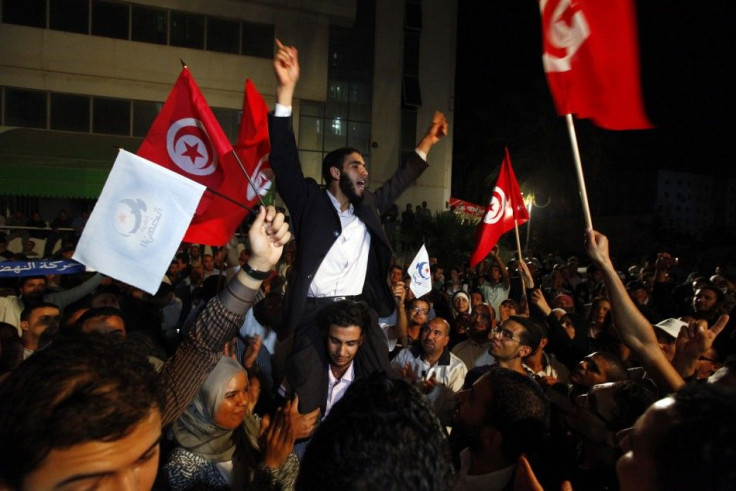Tunisian Islamists Seek Broad-Based Coalition with Secularist Counterparts

After becoming the first Arab Spring country to revolt against the establishment and overthrow a dictator, Tunisia has yet again set an example for emerging Middle East democracies by holding an election that, according to international observers, have been free and fair.
Yesterday, they showed [that] an Arab country can administer an election that's well run, that gives people an opportunity to choose their own destiny, Ambassador Richard Williams, an election monitor from the International Republican Institute, said Monday.
It was an enormous victory for the Tunisian people.
On Sunday, official results showed that of the millions of Tunisians who turned out to cast their vote, many favored Ennahda, the moderate Islamist party that won 43 of the 101 seats so far assigned to the 217-seat assembly, The Wall Street Journal reported. Partial results released supported Ennahda party claims that it won at least 40 percent of the seats.
The elections say a ballot that involved 80 parties offering candidates drew in more than 90 percent of registered voters in a country that had been nearly a one-party state since its independence from France in 1956.
I have observed 59 elections in the last 15 years, many of them in old democracies ... and never have I seen a country able to realize such an election in a fair, free, and dignified way, said Andreas Gross, a Swiss parliamentarian and the head of the observer delegation for the Council of Europe. I was elected in Switzerland on the same day in elections that were not much better than here.
The newly elected assembly -- the National Constituent Assembly -- is expected to appoint the interim government, spend a year writing a new constitution and is likely to lay the framework for a future system of government.
Ennahda's win highlights a radical shift in the region, for most elections there have tended to pit hardened Islamist groups against secular parties who are just as strident in opposing their rivals' politics. But Ennahda's officials have promised a broad-based coalition with their secular counterparts.
We will not exclude any party, independent personality or social movement, said Abdel Hamid Jelassi, Ennahda's campaign manager.
We were once the victims of a politics of exclusion and our goal is to create a government of national unity.
Ali Larayd, a member of Ennahda's executive committee, said the Islamists were ready to form an alliance with the Congress for the Republic and Ettakatol, both secularist groups that are respected by Tunisian intelligentsia. The Congress for the Republic has won 13 seats so far.
The Islamist party has also made known its desire to build stronger ties with Washington and European capitals, the Wall Street Journal wrote.
The United States has responded by increasing aid to Tunisia since the start of the revolution. For the first time since 1996, the U.S. would re-establish a Peace Corps branch in the country, according to President Barack Obama.
In a statement Monday, U.S. Secretary of State Hillary Clinton lauded Sunday's vote.
We believe it's committed to the democratic process, said a senior Western diplomat.
© Copyright IBTimes 2024. All rights reserved.



















